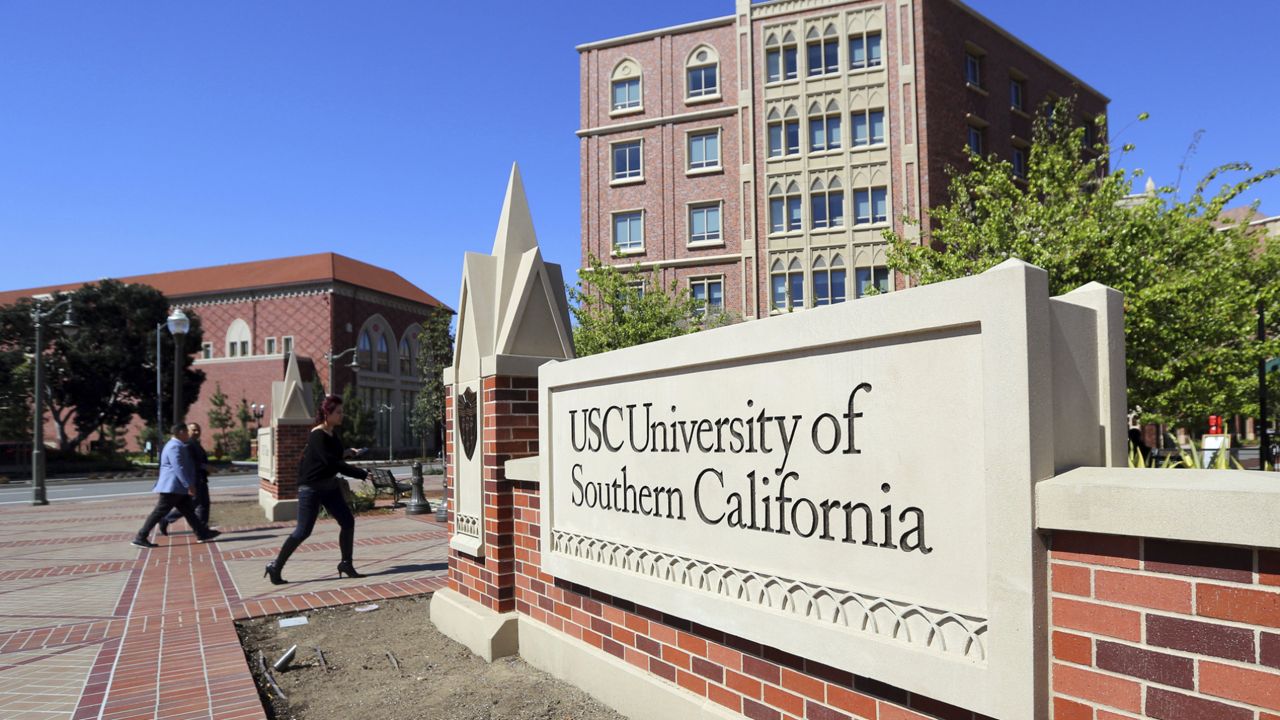LOS ANGELES (CNS) — The University of Southern California announced Wednesday that it has teamed up with the Los Angeles County Department of Public Health for a study to use antibody testing to follow 2,000 county households and improve understanding of social inequities exposed by the COVID-19 pandemic.
"This partnership between the Department of Public Health and USC will help us get a more complete and accurate picture of the pandemic in L.A. County," said Barbara Ferrer, the county's public health director. "Knowing how this picture changes over time will allow us to concentrate our efforts to slow the spread even more, providing resources and services directly to the residents and communities who need them the most."
The project, called the Los Angeles Pandemic Surveillance Cohort, will use antibody testing to track the impact of COVID-19 on families and communities. Researchers will be able to distinguish between people who test positive for antibodies due to a prior infection or vaccination.
"It's our privilege to help in this effort and actively partner with Los Angeles County to know more about the effect of this virus," USC President Carol Folt said. "Working alongside the Department of Public Health, our research scientists will provide data that makes an impact in our community."
The study will use a market research firm, LRW, to recruit 2,000 L.A. County households, including 2,000 adults and 1,000 children. The group's representation is anticipated to mirror the age, socioeconomic, gender, racial, and ethnic makeup of the county, and participants will be taken from neighborhoods with high, medium, and low population densities.
Researchers will test each person for COVID-19 antibodies and then retest them after two or three months. The team will track each person's health and well-being changes during the pandemic through questions about their jobs, mental health, and attitudes toward public health protocols like mask-wearing and social distancing.
"Even as the vaccination campaign proceeds and continuing measures such as masking, social distancing, and other guidelines are embraced, it is clear that this pandemic has a long way to go," said Howard Hu, professor and the Flora L. Thornton Chair of the Department of Preventive Medicine at the Keck School of Medicine. "A rigorous understanding of the pandemic's ongoing impact will be critical to devising the public health strategies to navigate this current situation and to allow us to return to some form of `normalcy' as quickly and safely as possible."
Along with Hu, Paul Simon, chief science officer for the county health department, will be the co-principal investigator of the study. Co-investigators include Rani Kotha, senior strategist of the USC Schaeffer Center; Andrea Kovacs, professor at the Keck School of Medicine; and Will Nichols, director of the health department's Center for Health Impact Evaluation.
The study, which is supported by funds through USC and the U.S. Centers for Disease Control and Prevention, is a collaboration between the county, the USC Price School of Public Policy, the USC Schaeffer Center for Health Policy and Economics, and USC's COVID-19 Pandemic Research Center within the Department of Preventative Medicine at the Keck School of Medicine of USC.



